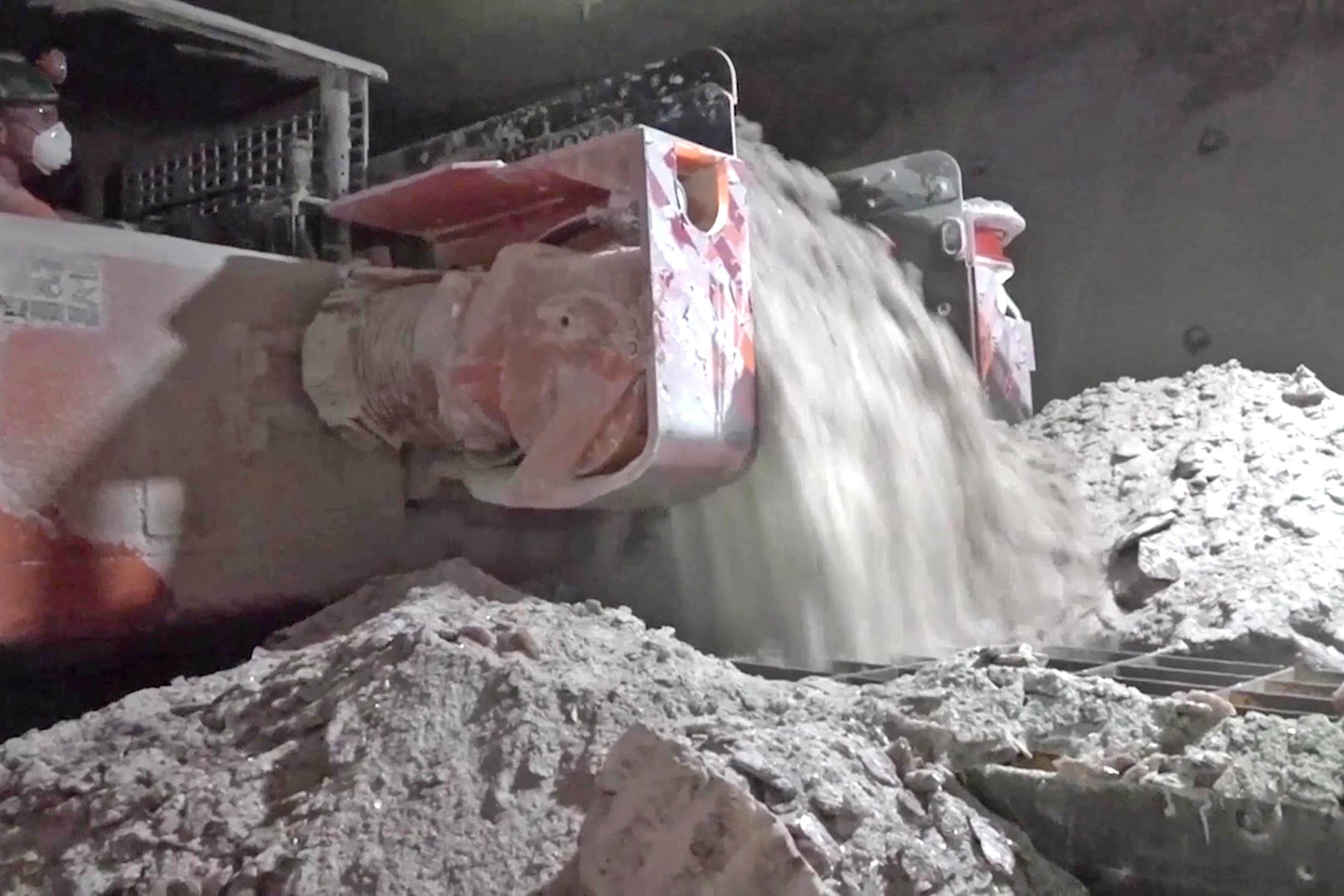Where does gritters’ salt come from? The secret behind what’s spread on our frozen roads
The UK’s grit has a surprising origin

Your support helps us to tell the story
From reproductive rights to climate change to Big Tech, The Independent is on the ground when the story is developing. Whether it's investigating the financials of Elon Musk's pro-Trump PAC or producing our latest documentary, 'The A Word', which shines a light on the American women fighting for reproductive rights, we know how important it is to parse out the facts from the messaging.
At such a critical moment in US history, we need reporters on the ground. Your donation allows us to keep sending journalists to speak to both sides of the story.
The Independent is trusted by Americans across the entire political spectrum. And unlike many other quality news outlets, we choose not to lock Americans out of our reporting and analysis with paywalls. We believe quality journalism should be available to everyone, paid for by those who can afford it.
Your support makes all the difference.Snow and ice have brought disruption across the country as Britons get their first taste of winter – with more forecast for the weekend,
Any driver will be familiar with the grit that sees off pesky ice at this time of year. This salty substance prevents slippery roads by melting frost and making it easier for cars to move safely.
It is essential for UK drivers that 250 million tonnes are stored in warehouses across the country. Most likely don’t pay much thought to the vital resource, taking it for granted as it is sprinkled out for yet another frosty winter in the UK.
But its origins may come as a surprise.

Road grit is actually the “remains of an ancient ocean” writes journalist Ed Conway, author of Material World, one which is now buried deep beneath our feet.
Here’s the full story:
Where does gritters’ salt come from?
Salt that is used on roads and pavements is quite different from what we put on food. For the most part, that will be extracted through brining or saltwater evaporation.
Meanwhile, gritters’ salt is mined – as is the case with most salts that are used industrially. Perhaps more surprisingly, the UK’s grit mostly comes from a single mine in Cheshire.

Here, as deep as 40 feet below the ground in Winsford mine, is a massive slab of rock salt that has been serving the country’s needs since 1844.
This is what remains of an ancient ocean formed around 200 million years ago, says Mr Conway.
The salt from this slab is mined using large rigs, which take away millions of tonnes every single day.
What’s more, while this might be the country’s largest salt mining operation, it does not stand alone. Another ancient salt source can be found on the other side of the country, north of York.
Here, in Boulby mine (near the town of Saltburn), an underground mine which extends past the coast can be found. This means salt is being extracted from tunnels located beneath the seabed, with the entire North Sea overhead.
This means that the salt we use on our roads is technically non-renewable – the mines will run out someday. However, this is likely a long way off, and other ways of extracting salt will remain available.



Join our commenting forum
Join thought-provoking conversations, follow other Independent readers and see their replies
Comments